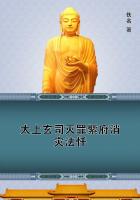Luther, though still a papist of the straitest sort, was filled with horror at the blasphemous assumptions of the indulgence mongers. Many of his own congregation had purchased certificates of pardon, and they soon began to come to their pastor, confessing their various sins, and expecting absolution, not because they were penitent and wished to reform, but on the ground of the indulgence. Luther refused them absolution, and warned them that unless they should repent and reform their lives, they must perish in their sins. In great perplexity they repaired to Tetzel with the complaint that their confessor had refused his certificates; and some boldly demanded that their money be returned to them. The friar was filled with rage. He uttered the most terrible curses, caused fires to be lighted in the public squares, and declared that he "had received an order from the pope to burn all heretics who presumed to oppose his most holy indulgences."--D'Aubigne, b. 3, ch. 4.
Luther now entered boldly upon his work as a champion of the truth. His voice was heard from the pulpit in earnest, solemn warning. He set before the people the offensive character of sin, and taught them that it is impossible for man, by his own works, to lessen its guilt or evade its punishment. Nothing but repentance toward God and faith in Christ can save the sinner. The grace of Christ cannot be purchased; it is a free gift. He counseled the people not to buy indulgences, but to look in faith to a crucified Redeemer. He related his own painful experience in vainly seeking by humiliation and penance to secure salvation, and assured his hearers that it was by looking away from himself and believing in Christ that he found peace and joy.
As Tetzel continued his traffic and his impious pretensions, Luther determined upon a more effectual protest against these crying abuses. An occasion soon offered. The castle church of Wittenberg possessed many relics, which on certain holy days were exhibited to the people, and full remission of sins was granted to all who then visited the church and made confession. Accordingly on these days the people in great numbers resorted thither. One of the most important of these occasions, the festival of All Saints, was approaching. On the preceding day, Luther, joining the crowds that were already ****** their way to the church, posted on its door a paper containing ninety-five propositions against the doctrine of indulgences. He declared his willingness to defend these theses next day at the university, against all who should see fit to attack them.
His propositions attracted universal attention. They were read and reread, and repeated in every direction. Great excitement was created in the university and in the whole city. By these theses it was shown that the power to grant the pardon of sin, and to remit its penalty, had never been committed to the pope or to any other man. The whole scheme was a farce,--an artifice to extort money by playing upon the superstitions of the people,--a device of Satan to destroy the souls of all who should trust to its lying pretensions. It was also clearly shown that the gospel of Christ is the most valuable treasure of the church, and that the grace of God, therein revealed, is freely bestowed upon all who seek it by repentance and faith.
Luther's theses challenged discussion; but no one dared accept the challenge. The questions which he proposed had in a few days spread through all Germany, and in a few weeks they had sounded throughout Christendom.
Many devoted Romanists, who had seen and lamented the terrible iniquity prevailing in the church, but had not known how to arrest its progress, read the propositions with great joy, recognizing in them the voice of God. They felt that the Lord had graciously set His hand to arrest the rapidly swelling tide of corruption that was issuing from the see of Rome. Princes and magistrates secretly rejoiced that a check was to be put upon the arrogant power which denied the right of appeal from its decisions.
But the sin-loving and superstitious multitudes were terrified as the sophistries that had soothed their fears were swept away. Crafty ecclesiastics, interrupted in their work of sanctioning crime, and seeing their gains endangered, were enraged, and rallied to uphold their pretensions. The Reformer had bitter accusers to meet. Some charged him with acting hastily and from impulse. Others accused him of presumption, declaring that he was not directed of God, but was acting from pride and forwardness. "Who does not know," he responded, "that a man rarely puts forth any new idea without having some appearance of pride, and without being accused of exciting quarrels? . . . Why were Christ and all the martyrs put to death? Because they seemed to be proud contemners of the wisdom of the time, and because they advanced novelties without having first humbly taken counsel of the oracles of the ancient opinions."Again he declared: "Whatever I do will be done, not by the prudence of men, but by the counsel of God. If the work be of God, who shall stop it? if it be not, who can forward it? Not my will, nor theirs, nor ours; but Thy will, O holy Father, which art in heaven."--Ibid., b. 3, ch. 6.















